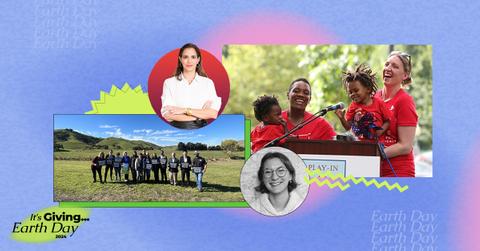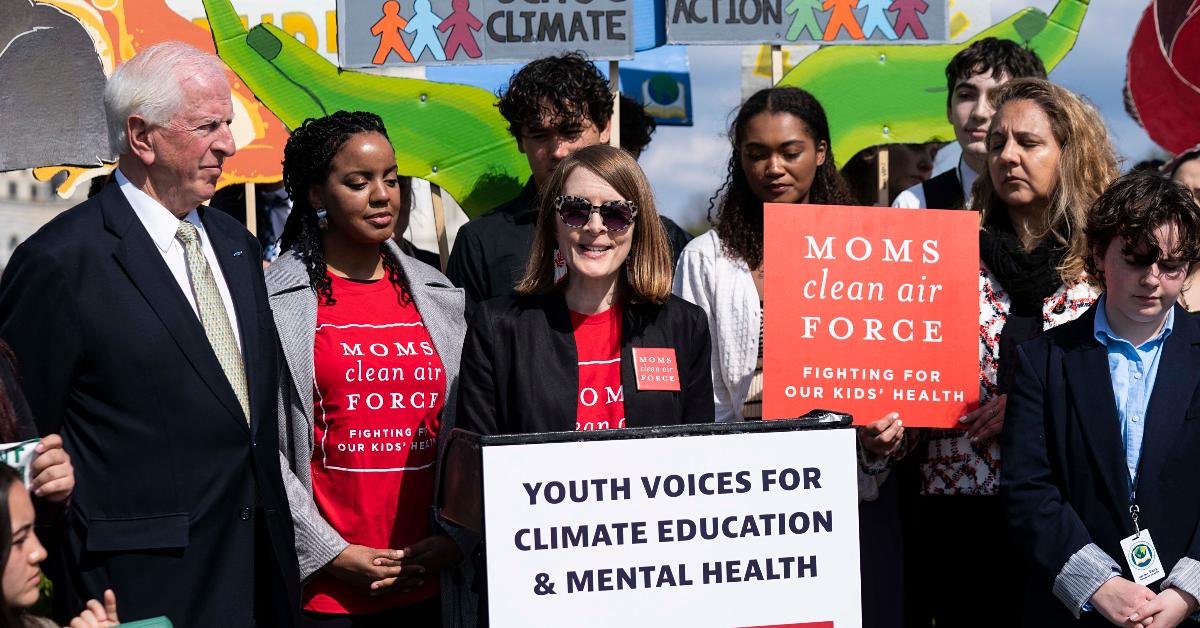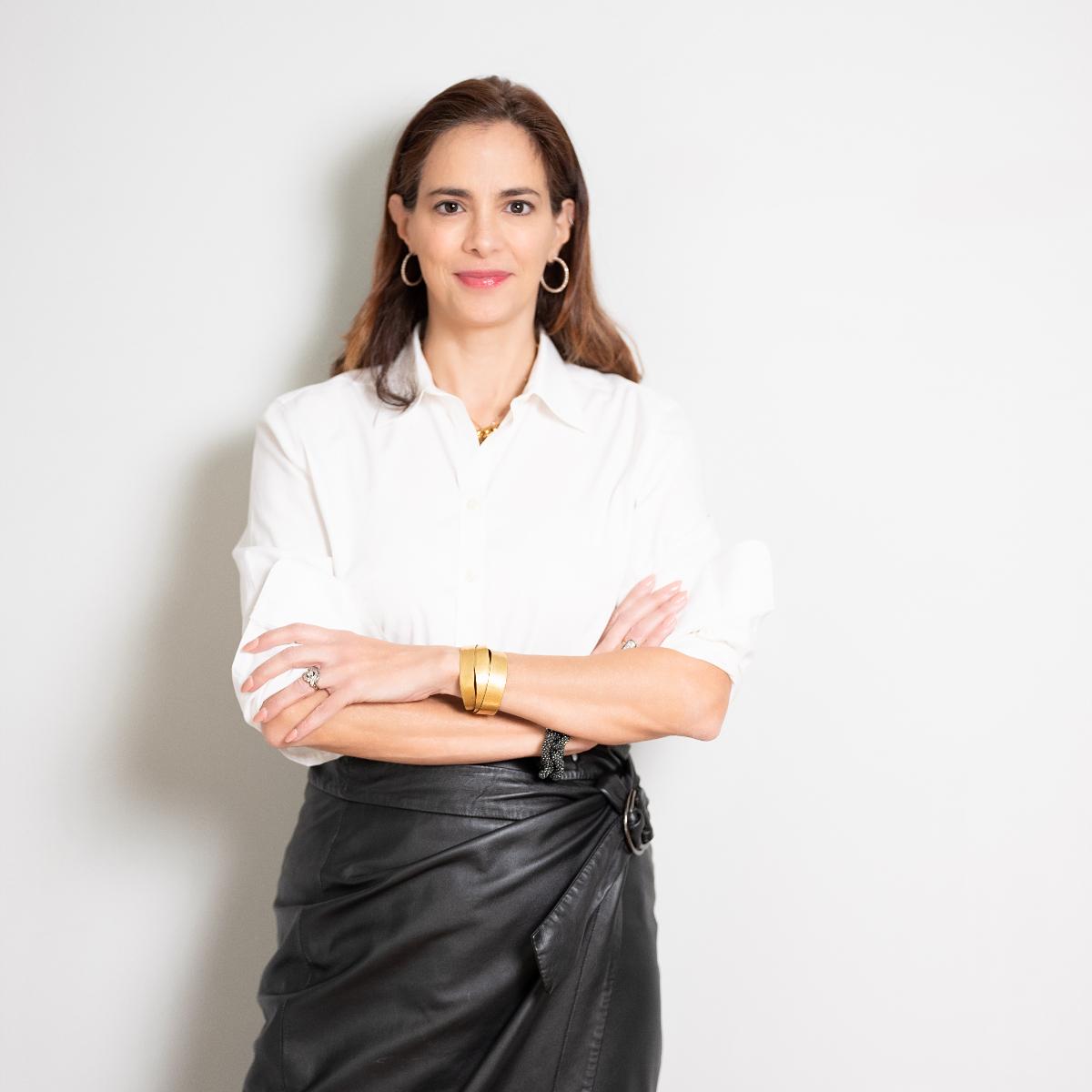It's Giving... Motherquake: These Mama Bear Environmentalists Did Not Come to Play (Exclusive)
"When moms harness their political power and come together for social and racial justice and share our dreams for our children, we cannot fail."
Published April 24 2024, 11:01 a.m. ET

When it comes to the righteous, outspoken moms of the environmentalism world, we are absolutely failing the "not saying mother for an entire minute" challenge. There are a slew of mom activists working to educate the world on environmental issues and fighting to protect future generations in the face of the climate crisis.
These environmentalists often put their maternal heads together, like the moms of action- and education-focused nonprofits Moms Clean Air Force and Mothers Out Front.
You could say these inspiring activists are well versed in motherlogical studies and have degrees from the University of Servington. Mother-centric internet memes aside (which are heavily rooted in LGBTQ+ ballroom culture and Black and Brown transgender women’s slang), these moms have a valuable perspective.

In honor of Earth Day 2024, we spoke exclusively via email with two mothers who are definitely mothering: Isabel González Whitaker, the Associate Vice President for Public Engagement at Moms Clean Air Force, and Jenny Zimmer, the Senior Director of Campaigns & Organizing at Mothers Out Front. In the below Q&A, these fierce women declare the importance of a mother's touch when it comes to protecting Mother Earth.
These interviews have been lightly edited and condensed for length and clarity.

Isabel González Whitaker, Associate Vice President for Public Engagement at Moms Clean Air Force
GREEN MATTERS: How does your organization believe the climate crisis uniquely affects mothers?
ISABEL GONZÁLEZ WHITAKER: Extreme heat, flooding, droughts, wildfires, landslides and hurricanes have forced women all over the world to be displaced to find safer environments for their families. These climate crises have led to food insecurity, stress, and mental health issues that uniquely affect mothers who are their family’s caregivers.
How we live our lives and what pollutants we are exposed to in the air can greatly impact future pregnancies and the health of children before they are even born. This is especially true for Black and Brown pregnant individuals, who are disproportionately affected by the impacts of climate change.
JENNY ZIMMER: When our families are confronted with the effects of the climate crisis — be it food and water insecurities, caring for a child who has asthma or other health issues caused or exacerbated by breathing dirty air — it is moms who work to find solutions, bear the increased responsibilities of care, and navigate stress. Because the climate crisis exacerbates existing inequalities and vulnerabilities, it has a disproportionate effect on mothers living in frontline communities that have been historically marginalized.

Jenny Zimmer, Senior Director of Campaigns & Organizing at Mothers Out Front
GM: Can you tell us about your organization's work in the realm of plastic pollution and production?
IGW: We have demanded better protections from both the EPA and President Biden to reduce toxic pollution from petrochemical facilities. We have educated our communities and lawmakers about the myth of advanced recycling, which is a polluting practice of incinerating plastic trash that creates climate-warming gases and releases toxic pollution. We can’t burn our way out of the plastics pollution problem. We have created numerous resources to spread awareness.
Petrochemical facilities that release harmful manufacturing chemicals in the air are disproportionately prevalent in historically marginalized communities and are responsible for health issues including birth defects, hormonal imbalances, cancer, cardiovascular issues, and neurodevelopmental conditions.
Our advocacy has been successful, as shown in new EPA regulations that will be enforced to limit six harmful chemicals and more than 6,000 tons of toxic air pollutants annually.
JZ: There is no way to produce plastics without toxic chemicals, and no way to dispose of plastics without releasing those same chemicals. Workers and surrounding communities are most severely impacted, but these chemicals can be picked up by plants grown in contaminated soil or spread via the water supply where they concentrate in marine wildlife.
Once plastic and its additives are in the environment there is no simple way to remove them or destroy them. We must advocate for legislation, policies, and business and consumer practices that reduce and ban the use of single-use plastics.
GM: Why is a mother’s perspective especially valuable in environmentalism?
IGW: Women have a special, sacred relationship with the earth as creators of life. Like mothers, Mother Earth nourishes, nurtures, protects, and provides security. Through this lens, we see how the continued devastation of our planet has led to our current climate crisis and that negatively impacts the health and quality of lives of our children. Our resiliency, passion, and selfless motivation leads us to the frontline of this fight, driving necessary conversations with all levels of government.
JZ: A mother's love provides moral clarity and a fierce determination to speak truth to power, confront dangers, and take bold action to protect our children. Mothers are also connected to community institutions, like schools, local governments, and community organizations, making them moral leaders with invaluable perspectives.
When moms harness their political power and come together for social and racial justice and share our dreams for our children, we cannot fail.
This article is part of Green Matters’ 2024 Earth Day programming, It's Giving... Earth Day: A series about the people and organizations who are “giving” Earth Day 24/7. We hope these stories inspire you to embody the spirit of Earth Day all year round.